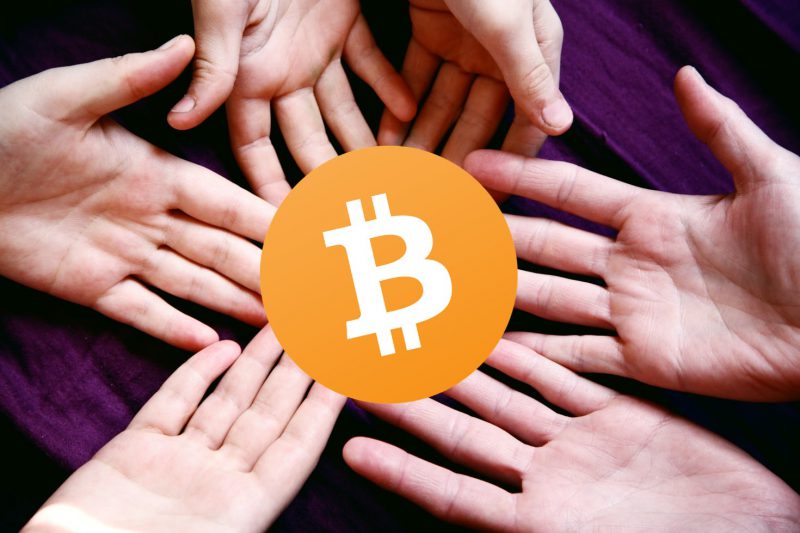Born during a historic financial crisis, Bitcoin [BTC] wasn’t short of creating history itself. The first cryptocurrency in the world entered the market during a time when technological advances in the financial arena were overlooked. Nevertheless, several battles later, BTC grew to become a key asset in the global financial system. Currently valued at $45K, BTC is the largest cryptocurrency in the market.
Despite the impeccable growth of the asset, government officials from across the globe continue to thrash BTC and the crypto-verse. To some cryptocurrencies are a swindle, or a Ponzi scheme. But to several others, Bitcoin and crypto is a safe haven, a medium of income, and even an instrument to preserve their life savings.
People have even compared BTC to gold because of its similar qualities. The term “digital gold” is often used to describe Bitcoin. However, many of them advocate for the opposite. This Indian politician, for instance, had an entirely different take on crypto.
Bitcoin consumption is injurious to health?
Indian crypto investors are currently dealing with a crisis of their own following the 30 percent tax on trading. While the entire world was embracing crypto, India was moving backward. A recent statement made by Supriya Sule member of the opposition shook the community. Sule went on to compare Bitcoin to tobacco.
Sule stated during the Finance Bill meeting that Bitcoin was terrible for the country and needed to be prohibited. Sule emphasized the 30% tax on crypto, comparing it to how tobacco was outlawed because it was harmful to society. Similarly, she proposed that cryptocurrency, like tobacco, should be prohibited.
In addition to this, she believes that a 30 percent tax wouldn’t “scare” people away. Hence a ban on the industry was called for.
Cryptocurrency has been likened to a variety of items in the world. Here’s a list of other bizarre things that Bitcoin has been compared to.
BTC or Cigarettes?
This wasn’t the first time cryptocurrency has been linked to tobacco and cigarettes. Jamie Dimon, the CEO of JPMorgan Chase, went on to label Bitcoin worthless. He even compared cryptocurrency trading to smoking cigarettes. He explained.
“I personally think that Bitcoin is worthless. But I don’t want to be a spokesman for that, I don’t care. It makes no difference to me. I don’t think you should smoke cigarettes either. That said, the largest bank in the US will offer its clients exposure to Bitcoin.”
Tulip Mania Bubble
This phenomenon from the 17th century appears to be often employed in the crypto-verse. During the Tulip frenzy, the price of Tulips was inflated by Dutch investors. However, the industry soon saw a catastrophic crash. A few of them compared Bitcoin to the Tulip fever, implying that it was a bubble that would soon explode.
One of them was Nassim Nicholas Taleb, the author of Black Swan. He slammed the industry, claiming it was a tulip bubble devoid of aesthetics and masquerading as a currency.
Gold bug Peter Schiff also mirrored these thoughts as he suggested that Bitcoin has now replaced Tulip bulbs. He tweeted,
Rat Poison
Yes, you read it right. Warren Buffet despised Bitcoin. During an interview, Buffet said that BTC was “probably rat poison squared.” However, years after comparing crypto to rat poison, Buffet went on to invest nearly $1 billion in BTC.
Fool’s Gold
Move over Bitcoin being touted as “digital gold” critics went on to call crypto “fool’s gold” instead. The popular members of the list are none other than Jamie Dimon and Peter Schiff. Both of them have expressed how Bitcoin and other crypto was a “little bit of fool’s gold.”
Ponzi Scheme
This is a common one. An array of individuals have labeled crypto as a scam or Ponzi scheme. The deputy governor of the Reserve Bank of India [RBI], Rabi Sankar recently pushed the government towards banning crypto. He further said cryptocurrencies were “Ponzi scheme…and may even be worse”
Nassim Nicholas Taleb seems to be immensely hating on Bitcoin. The author outrightly called BTC a gimmick following its volatility. He went on to add that cryptocurrencies like BTC echoed the qualities of a Ponzi scheme.
Honorable Mention – Bitcoin could spoil the youth of India
After tobacco, rat poison, and whatnot, Bitcoin is bad for young Indians as well. The Prime Minister of India, Narendra Modi recently implied that BTC posed a major risk to young Indians. He said,
“It is important that all democratic nations work together on this and ensure it does not end up in the wrong hands, which can spoil our youths.”
Is criticism like this meddling with the price?
While this may seem like a far-fetched scenario, such criticism could surely harm the market’s image. Despite the fact that crypto is no longer in its nascent stage, it is critical for the asset to grow its community. The criticism from international leaders has hampered its attempts.
The community speculates that the majority of those making these remarks are uninformed about the cryptocurrency sector. As a result, widespread misinformation might be hazardous to the market’s growth.





